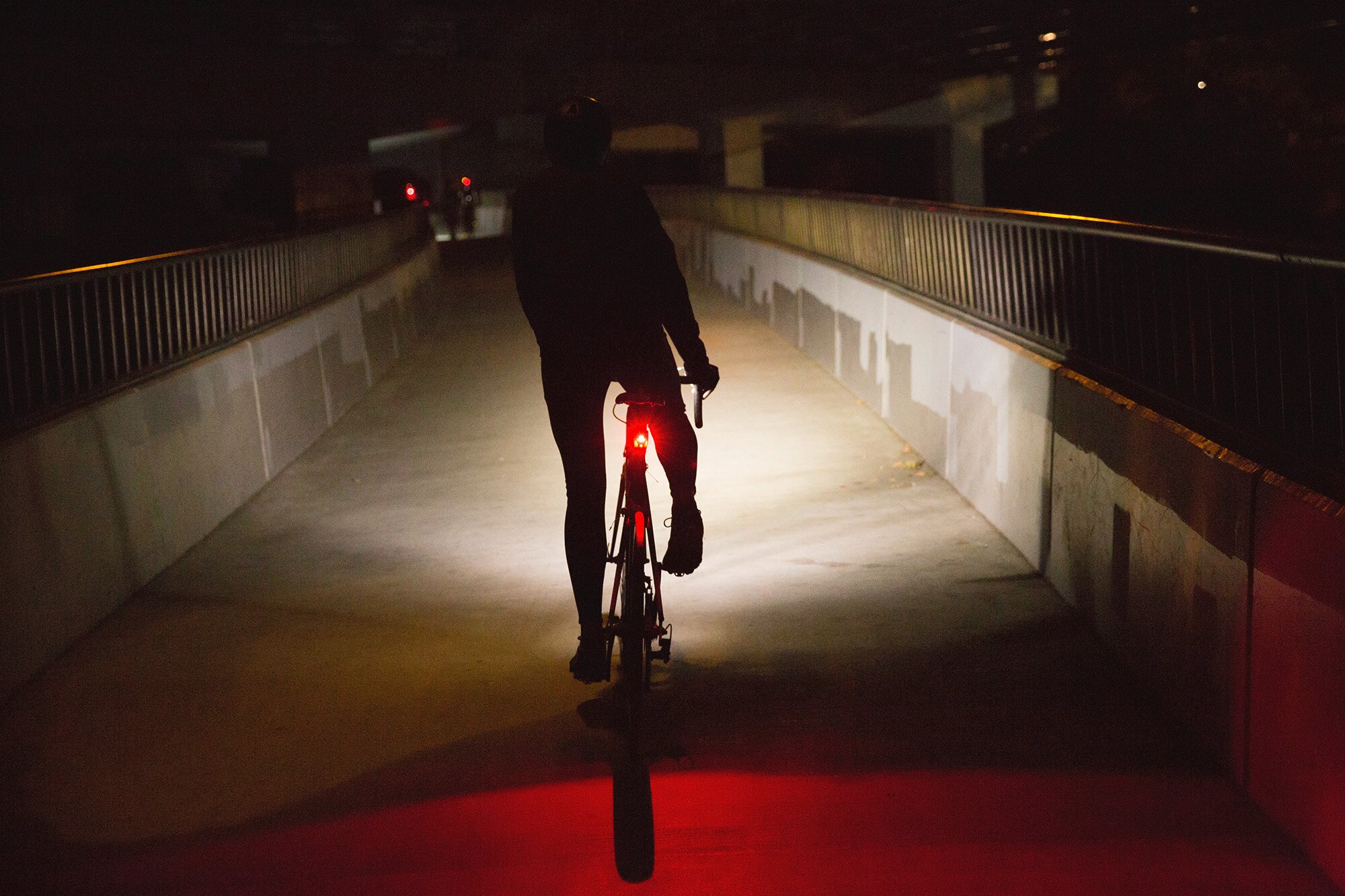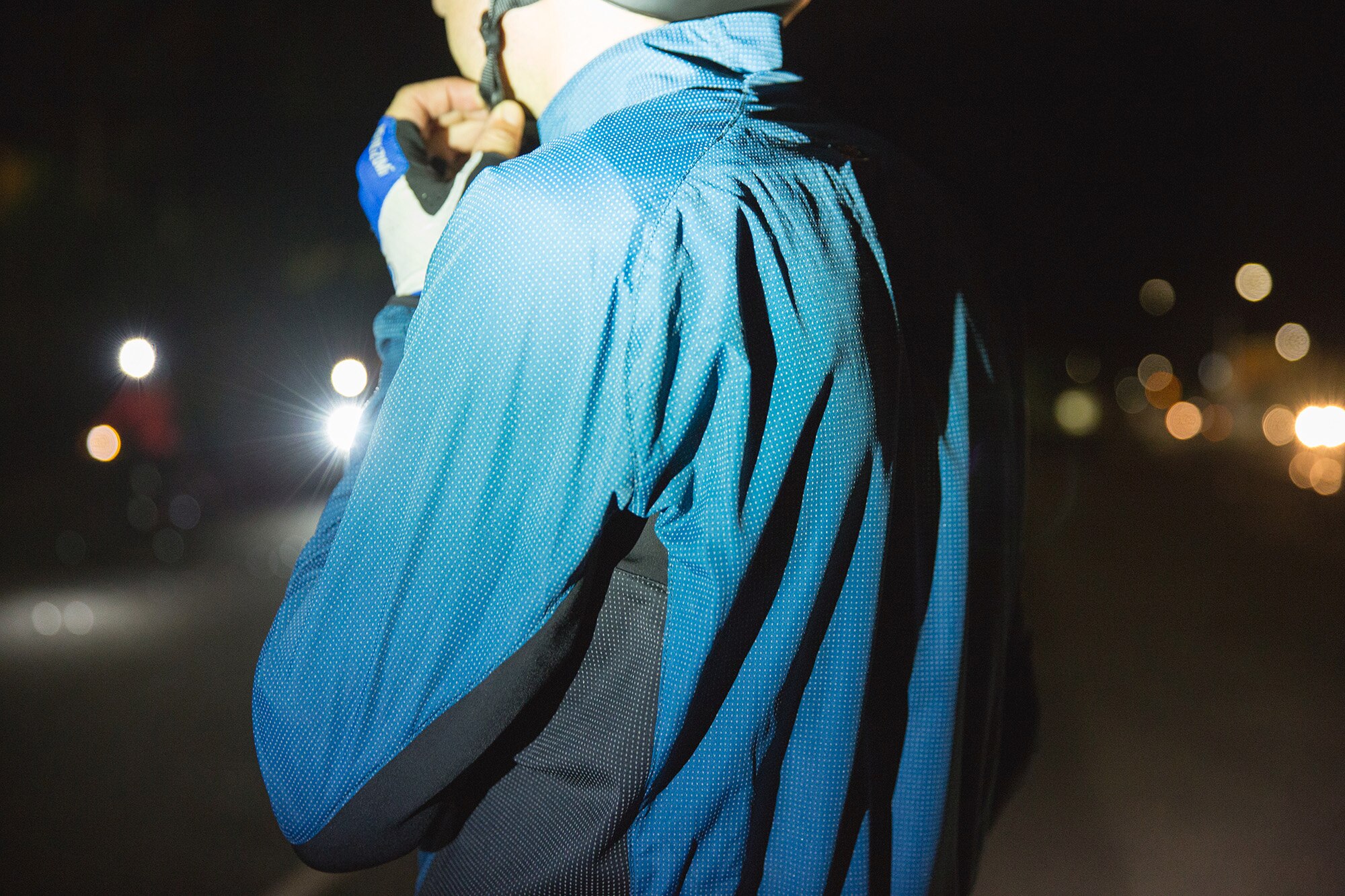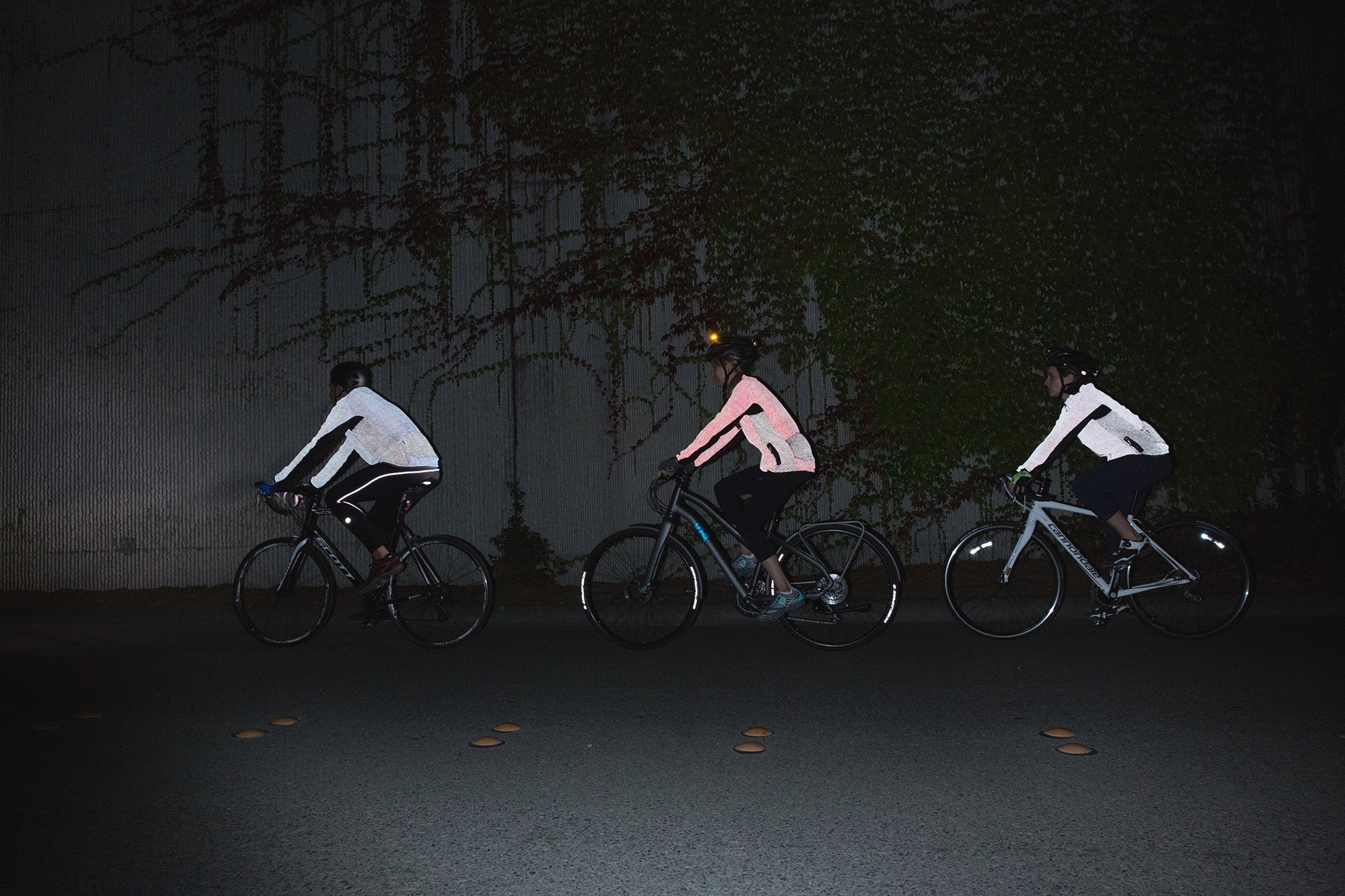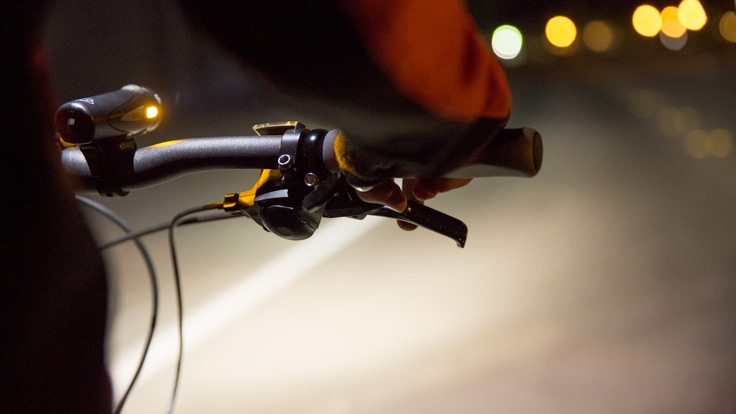Cycling is generally a daytime activity but sometimes the road beckons, even in the dark. Fortunately, you can still get out on two wheels with a few key bike accessories and some tips to help keep you safe, warm and visible—whether you're commuting or just want to get out for an evening ride.
Light It Up

1. Some lights are for seeing, and some help others see you. You should have a handlebar light, a helmet light and a rear light. The handlebar light illuminates the road in front of you and makes you visible to oncoming traffic. The rear light keeps you visible from behind, and the helmet light illuminates your field of vision when you need to turn and look at something. For more lighting tips, see our article on how to choose bike lights.
2. Never use flash mode on your handlebar light at night, and always point it at the ground 20 feet in front of you. Overly bright or flashing lights aimed in drivers' faces is dangerous for both of you.
3. USB-rechargeable lights are usually much brighter but can have a shorter battery life. Carry an extra battery-powered light as a backup. Set a reminder on your phone to recharge your lights each night or while you're at work.
4. Be mindful of your speed and don't outride your lights. Give yourself enough time to react to any obstacles in your path.
Layer It On

5. Cycling clothing should keep you both warm and visible. Choose pieces with reflective fabrics and details, especially at spots with a lot of movement like your ankles.
6. Layering for warmth is essential on chilly nights. Wool is your friend. Don't forget gloves, a balaclava or skullcap, and good socks. For more ideas, read our article, What to Wear on a Bike Ride.
7. Reflective tape is an effective and cheap way to add reflectivity to fenders, frames, bags, panniers, crank arms, helmets and anything else you can think of to make yourself as visible as possible.
8. Clear glasses can help protect your eyes from wind and debris cars may kick up without impeding your vision. You can get a cheap pair of safety glasses at your local hardware store if you're looking to cut down on costs.
Ride It Smart

9. Check your bike for any potential issues before you head out; you don't want to be stuck on the side of a dark road repairing a chain. Make sure you know how to do a pre-ride bike inspection.
10. Get familiar with your route in the daylight so you can see any obstacles or confusing intersections. If you're just starting out with night riding, a well-lit bike path can help ease you into it until you feel comfortable enough to tackle darker routes.
11. Even with good lights, the occasional pothole will take you by surprise. Keep your weight on your legs rather than your seat to absorb sudden bumps.
12. Ride with a buddy when you can, because the old adage of safety in numbers is pertinent.
13. Own the road when necessary and don't hug the curb too tightly on busy streets. Getting over too far can encourage cars to pass you when it might be unsafe. But always ride defensively; drivers aren't always looking for cyclists at night.
14. Night riding is not the place for your fanciest road bike. Choose something sturdy, preferably with wider tires and mounts for lights and fenders.
